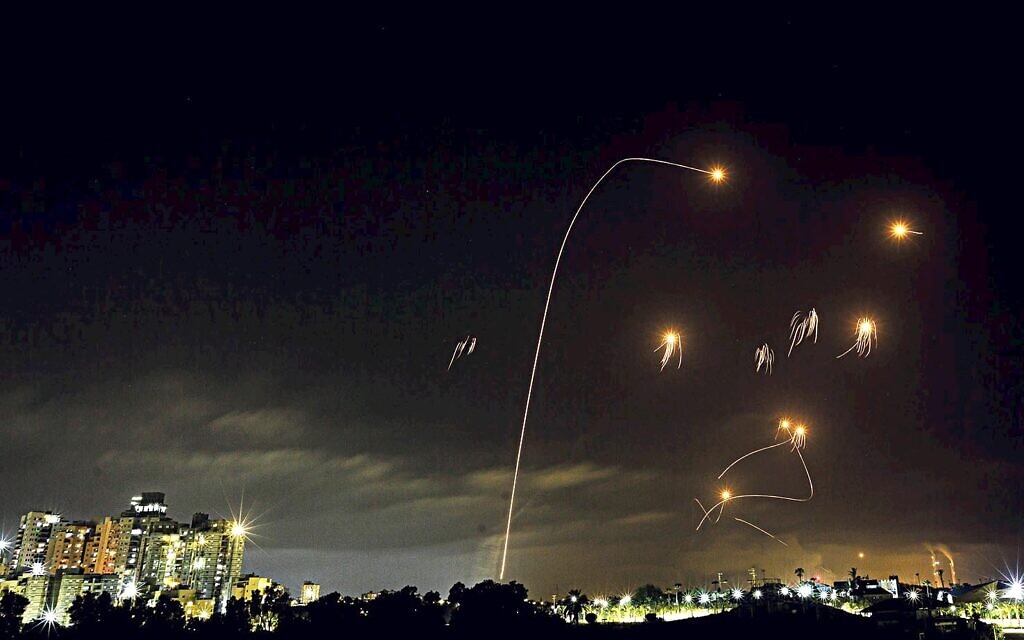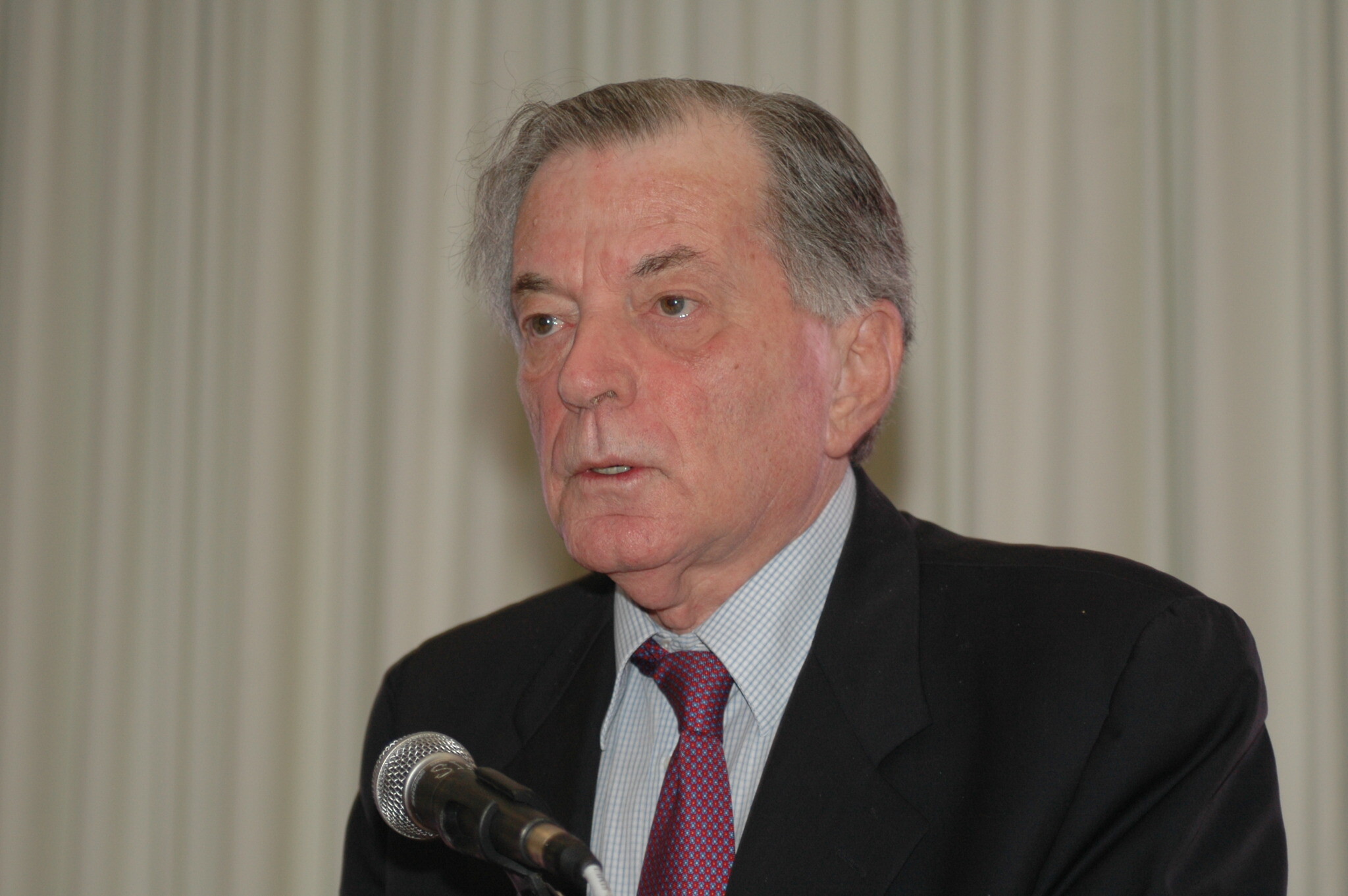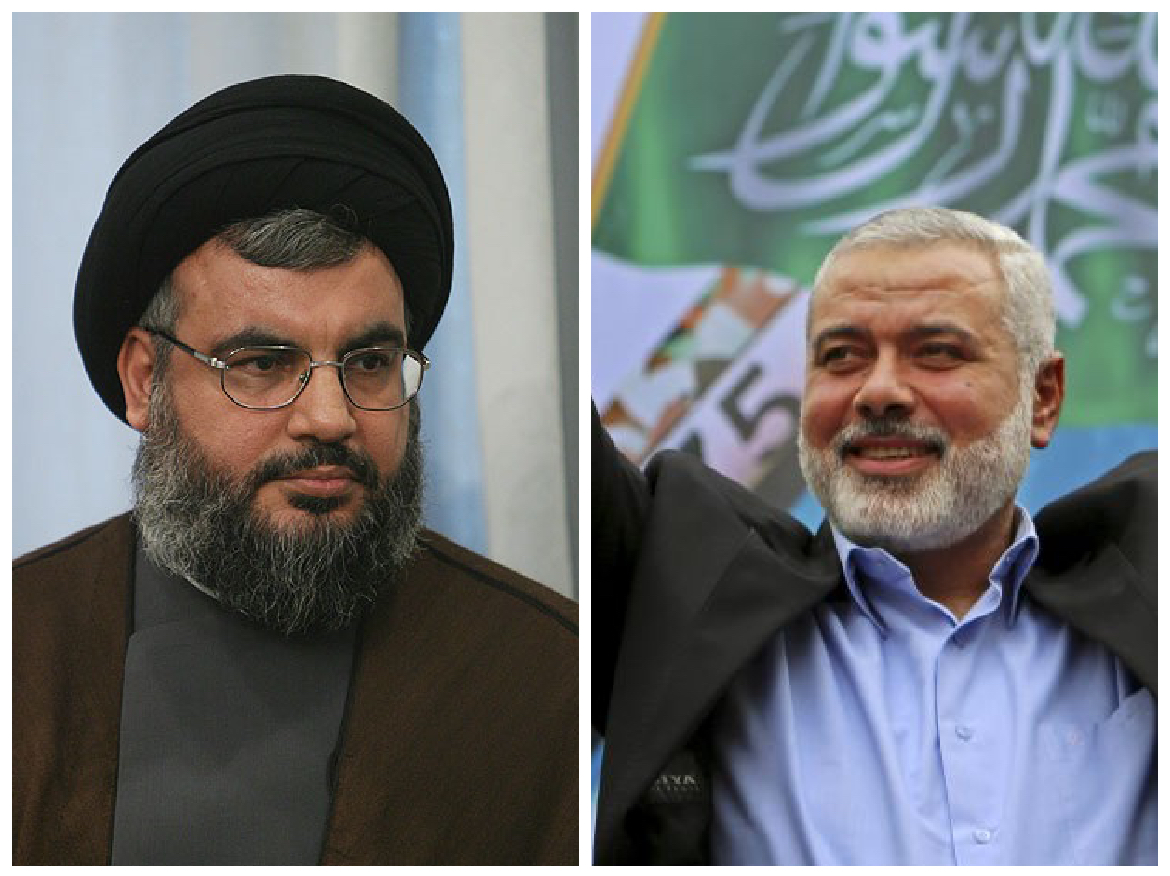ANALYSIS: The war with Hamas may be a dress rehearsal for war with Hezbollah
Prof Itamar Rabinovich, who served as Israel’s envoy to the US and its chief negotiator with Syria, offers expert insight into the possible continuation of proxy war with Iran

Prof Itamar Rabinovich is Professor Emeritus of Middle Eastern History at Tel Aviv University, where he is also an esteemed Board Member of the Boris Mints Institute. In a long diplomatic career, Prof Itamar Rabinovich served as Israel’s ambassador to the United States, as well as Israel’s Chief Negotiator with Syria. An author of ten books on the modern history and politics of the Middle East, Prof Rabinovich is also President Emeritus and Counselor of the Israel Institute (Washington and Tel Aviv) and a Distinguished Fellow of the Brooking Institution's Foreign Policy Program.

During the height of the Syrian civil war, Israel kept a low profile. Its policy was shaped by a fundamental decision not to be drawn into the war and to limit its responses and actions to direct challenges to Israel, to the interdiction of the transfer of advanced weapons from Iran and Syria to Hezbollah in Lebanon, and to curtailing Hezbollah’s efforts to install itself in southern Syria and build one long front from the Mediterranean to the Syrian Golan.
This phase ended after December 2016 following the victory of Bashar al-Assad and his supporters, Russia and Iran, over the opposition.
In the aftermath of this victory, Iran’s policy of saving the Assad regime was transformed into an effort to build a land bridge through Iraq and Syria to the Mediterranean and to build its own arsenal of precision guided missiles and rockets in Syria.
Get The Jewish News Daily Edition by email and never miss our top stories Free Sign Up
From 2018 to 2021, Israel has conducted a persistent campaign against this Iranian effort, which has met with partial success: Iran’s efforts in Syria were limited but not stopped.

It is against this backdrop that the recent round of fighting between Israel and Hamas in Gaza took place. Iran’s intervention in Syria benefited from this round of fighting – Israel’s efforts and its Air Force were focused on the fighting in Gaza, essentially giving Iran a free hand in Syria for approximately two weeks.
There were also some pressures on Iran and Hezbollah to join the fray. After all, Hamas is their ally, it is supported by Iran and regards itself as Hezbollah’s disciple.
At the same time, neither Iran nor Hezbollah wanted to open a fully fledged front with Israel, so instead made symbolic contributions. Iran sent an armed drone from either Syria or Iraq that was shot down by the Israeli Air Force. Hezbollah allowed a small Palestinian organization to fire four rockets from south Lebanon into northern Israel.
Iran’s intervention in Syria benefited from this round of fighting – Israel’s efforts and its Air Force were focused on the fighting in Gaza, essentially giving Iran a free hand in Syria for approximately two weeks
But there is another dimension to this issue. During the past two decades, Iran has built an impressive arsenal of rockets and missiles in Lebanon, managed and occasionally operated by Hezbollah. The size of this arsenal is significant – well over a hundred thousand – but only a small part of the arsenal is composed of long-range precision-guided heavy missiles.
This arsenal is designated as a deterrent against an Israeli attack on either Iran’s nuclear installations or on Hezbollah itself. In 2006, during the “Second Lebanon War”, Israel had a taste of this arsenal’s destructive potential. Since then, the arsenal has been enlarged and improved. Iran’s major effort is invested in enhancing this arsenal further, specifically with precision-guided missiles, and trying to build its own capacity in Syria.

In some respects, the round of fighting between Israel and Hamas can also be seen as a dress rehearsal for a potential new round with Hezbollah. Since 2006, given the devastation caused by its confrontation with Israel, Hezbollah has been careful to avoid another war. But this could escalate at any time and, if it does, Israel would be subjected to missile attacks on its cities and essential installations.
In parallel, Israel has been building its own ability to intercept Hezbollah’s missiles. Hamas’s relatively crude rockets were largely intercepted by Israel’s Iron Dome.
A different, more sophisticated system has been developed to intercept Hezbollah’s arsenal but, in the event of another round, it is assumed that Israel would sustain significant damage before its Air Force and other units of the IDF would be able to neutralize Hezbollah’s arsenal. There is no doubt that both Iran and Hezbollah have been watching Israel’s performance against Hamas’s rockets and are drawing their own lessons.
Now that the fighting with Gaza is over, it can be expected that the Israeli-Iranian conflict in Syria will resume. One of the many challenges facing Israel’s leadership is its ability to sustain these efforts without sliding into yet another war against an adversary which possesses an even more sophisticated arsenal of missiles and rockets and other military capabilities.
- Prof Itamar Rabinovich’s latest book – Syrian Requiem: The Civil War and its Aftermath – is available to order. Co-authored with Dr. Carmit Valensi, Syrian Requiem marks 10 years since Syria’s descent into civil war and provides a far-reaching analysis of how the crisis started, unfolded, and its continuing impact in the Middle East and around the world.
- Prof Itamar Rabinovich is Professor Emeritus of Middle Eastern History at Tel Aviv University, where he is also an esteemed Board Member of the Boris Mints Institute. In a long diplomatic career, Prof Itamar Rabinovich served as Israel’s ambassador to the United States, as well as Israel’s Chief Negotiator with Syria. An author of ten books on the modern history and politics of the Middle East, Prof Rabinovich is also President Emeritus and Counselor of the Israel Institute (Washington and Tel Aviv) and a Distinguished Fellow of the Brooking Institution’s Foreign Policy Program.

Thank you for helping to make Jewish News the leading source of news and opinion for the UK Jewish community. Today we're asking for your invaluable help to continue putting our community first in everything we do.
For as little as £5 a month you can help sustain the vital work we do in celebrating and standing up for Jewish life in Britain.
Jewish News holds our community together and keeps us connected. Like a synagogue, it’s where people turn to feel part of something bigger. It also proudly shows the rest of Britain the vibrancy and rich culture of modern Jewish life.
You can make a quick and easy one-off or monthly contribution of £5, £10, £20 or any other sum you’re comfortable with.
100% of your donation will help us continue celebrating our community, in all its dynamic diversity...
Engaging
Being a community platform means so much more than producing a newspaper and website. One of our proudest roles is media partnering with our invaluable charities to amplify the outstanding work they do to help us all.
Celebrating
There’s no shortage of oys in the world but Jewish News takes every opportunity to celebrate the joys too, through projects like Night of Heroes, 40 Under 40 and other compelling countdowns that make the community kvell with pride.
Pioneering
In the first collaboration between media outlets from different faiths, Jewish News worked with British Muslim TV and Church Times to produce a list of young activists leading the way on interfaith understanding.
Campaigning
Royal Mail issued a stamp honouring Holocaust hero Sir Nicholas Winton after a Jewish News campaign attracted more than 100,000 backers. Jewish Newsalso produces special editions of the paper highlighting pressing issues including mental health and Holocaust remembrance.
Easy access
In an age when news is readily accessible, Jewish News provides high-quality content free online and offline, removing any financial barriers to connecting people.
Voice of our community to wider society
The Jewish News team regularly appears on TV, radio and on the pages of the national press to comment on stories about the Jewish community. Easy access to the paper on the streets of London also means Jewish News provides an invaluable window into the community for the country at large.
We hope you agree all this is worth preserving.
-
By Brigit Grant
-
By Laurent Vaughan - Senior Associate (Bishop & Sewell Solicitors)
-
By Laurent Vaughan - Senior Associate (Bishop & Sewell Solicitors)
-
By Laurent Vaughan - Senior Associate (Bishop & Sewell Solicitors)
-
By Laurent Vaughan - Senior Associate (Bishop & Sewell Solicitors)





















